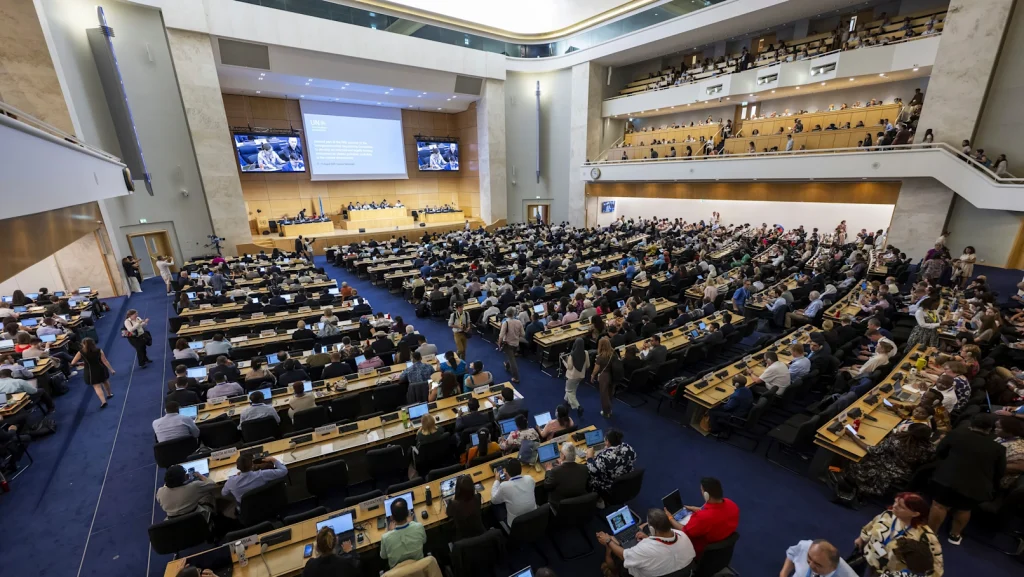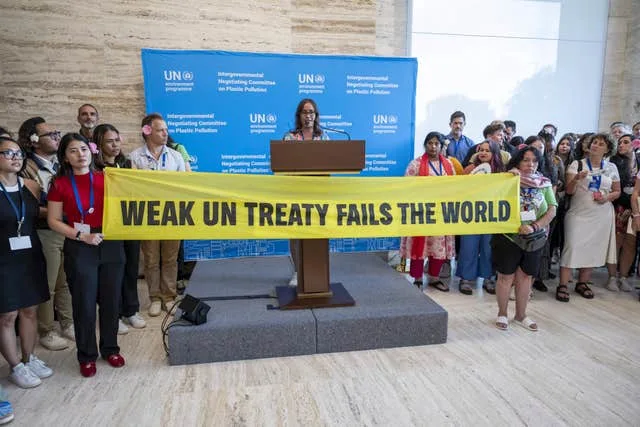Efforts to finalize a landmark global treaty to combat plastic pollution have stalled once again, with negotiators in Geneva unable to reach a deal by Friday.
For 11 days, representatives from 184 nations met at the United Nations headquarters in the Swiss city, aiming to produce the first legally binding international accord addressing plastic waste, including in oceans. But deep divisions over whether to curb the rapid growth of plastic production and impose global restrictions on toxic chemicals left talks deadlocked—echoing last year’s failed round in South Korea.

Luis Vayas Valdivieso, chair of the negotiating committee, presented two draft treaty texts reflecting different national positions. However, neither draft gained enough support to move forward. On Friday, Valdivieso told delegates that no further steps were planned for the latest version, leaving next moves undecided.

Countries including Norway, Australia, and Tuvalu expressed deep disappointment at leaving Geneva without an agreement. The European Union’s commissioner Jessika Roswall said the bloc had hoped for more ambitious results but still viewed the current draft as a workable foundation for future talks.
Saudi Arabia and Kuwait criticized both drafts, claiming they lacked balance and went beyond the treaty’s scope by addressing plastic production. The latest draft dropped proposals for direct limits on plastic manufacturing but acknowledged that current production and consumption levels are “unsustainable” and require coordinated global action.
The core dispute remains whether the treaty should cap plastic production or focus solely on improving product design, recycling, and reuse. Oil- and gas-producing nations, along with the plastics industry, oppose production limits, while roughly 100 countries argue such measures—along with addressing harmful chemicals—are essential.
Without new policies, global plastic output, currently over 400 million tons annually, could rise by about 70% by 2040.
Scientific experts, such as ecotoxicologist Bethanie Carney Almroth from the University of Gothenburg, emphasized that research supports tackling plastics across their entire lifecycle—from extraction and production to disposal—and restricting certain chemicals to make plastics safer. “The science has not changed,” she said. “It cannot be negotiated away.”
Environmentalists, indigenous leaders, waste pickers, and some business figures attended the talks to push for strong commitments. Many are leaving frustrated, particularly indigenous groups, who sought recognition of their rights and traditional knowledge within the treaty framework.


